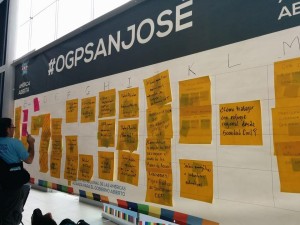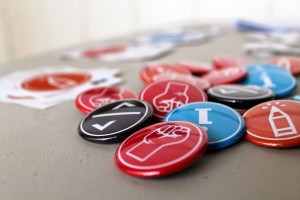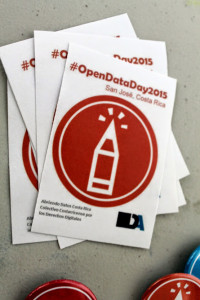Data literacy in Costa Rica
 Are the audiences in Costa Rica ready to read numbers? Do they know how to efficiently use data? Those are valid questions in a context where the use of open -and big- data has gained power worldwide, with different initiatives promoting the use of information to improve daily life.
Are the audiences in Costa Rica ready to read numbers? Do they know how to efficiently use data? Those are valid questions in a context where the use of open -and big- data has gained power worldwide, with different initiatives promoting the use of information to improve daily life.
There are no exact measures of the data literacy in Costa Rica, but the fact is we have been producing data for thousands of years and using it to tell stories, record history and making decisions. More recently, new technologies have emerged and they are used more intensely by citizens. For example, according to the National Household Survey of 2014, from the National Institute of Statistics, 58,7% of the population had access to the internet in 2014 (55% of households), and nearly half of them (44%) accessed the internet through mobile devices. In comparison, in 2000 only 10% of the households had internet. Additionally, a lot of public institutions, universities, enterprises, the government and even citizens are constantly creating and exchanging information.
So we have the data, the technology, but we need the ability to put those two together to create something useful. The question we need to answer is how can we encourage and teach citizens towards data-driven-decision making?
Some initiatives have been addressing this issue in the past years. Media and journalism have also started to use data as a primary source of information to tell stories. Three of the most important media in the country have data driven journalism units that have created journalistic stories that caused impact and involvement of the audience and even public authorities, for example: government spending in rentals, the hidden cost of gasoline, the returns of education, factchecking the political candidates, an analysis of the national database of 113 years of registered births, among others.
 Besides, there are civil society organizations like Abriendo Datos, that have started to build a data community in Costa Rica, that creates awareness of the importance of public information. Another practical example: Costa Rica is one of the countries with more active users in Waze, a community-based traffic and navigation app, that basically uses data to help drivers arrive to their destinations. The app is so popular that the Minister of Transportation partnered with Waze to exchange information about traffic or road closures, to help both the traffic police and drivers. This shows that people found a way to use data – for example let drivers know where’s an accident- and technology to improve their daily lives. They learned how to deal with the problem of driving in Costa Rica using data.
Besides, there are civil society organizations like Abriendo Datos, that have started to build a data community in Costa Rica, that creates awareness of the importance of public information. Another practical example: Costa Rica is one of the countries with more active users in Waze, a community-based traffic and navigation app, that basically uses data to help drivers arrive to their destinations. The app is so popular that the Minister of Transportation partnered with Waze to exchange information about traffic or road closures, to help both the traffic police and drivers. This shows that people found a way to use data – for example let drivers know where’s an accident- and technology to improve their daily lives. They learned how to deal with the problem of driving in Costa Rica using data.
In addition Costa Rica’s government joined the Open Government initiative in 2012, to improve access to data in public institutions. Nevertheless the process has been slow and only a few institutions have made real efforts to make information available and easy to obtain. For example, the country ranked first in the access of National Statistics, in the latest Open Data Index, but overall Costa Rica got a score of 38%.
 This shows that there are challenges ahead regarding the access to public information and lack of data literacy in some of the public institutions that produce big amounts of data. A lot of information of this entities is still collected in paper and not in digital formats, and it’s not centralized. So if you want to access this information you have to go to different offices, look for the papers and star digitizing it by yourself, which is a slow, tedious process. In other cases, I personally have experienced that institutions treat you in a different way when you ask for public information if you work in a media organisation in comparison if you ask for the data as a citizen or a university student. There is also a delay in response times, even though the law establishes a maximum of 10 days to give the information.
This shows that there are challenges ahead regarding the access to public information and lack of data literacy in some of the public institutions that produce big amounts of data. A lot of information of this entities is still collected in paper and not in digital formats, and it’s not centralized. So if you want to access this information you have to go to different offices, look for the papers and star digitizing it by yourself, which is a slow, tedious process. In other cases, I personally have experienced that institutions treat you in a different way when you ask for public information if you work in a media organisation in comparison if you ask for the data as a citizen or a university student. There is also a delay in response times, even though the law establishes a maximum of 10 days to give the information.
We have to address this and other issues, but in order to do that we have to make people aware of the importance of public data. I’ve found that the best way to start is to be persistent, continuously ask for information, keep creating data driven contents and keep a constant exchange with audiences, since data literacy is a process in the making in which involvement and community is necessary.

